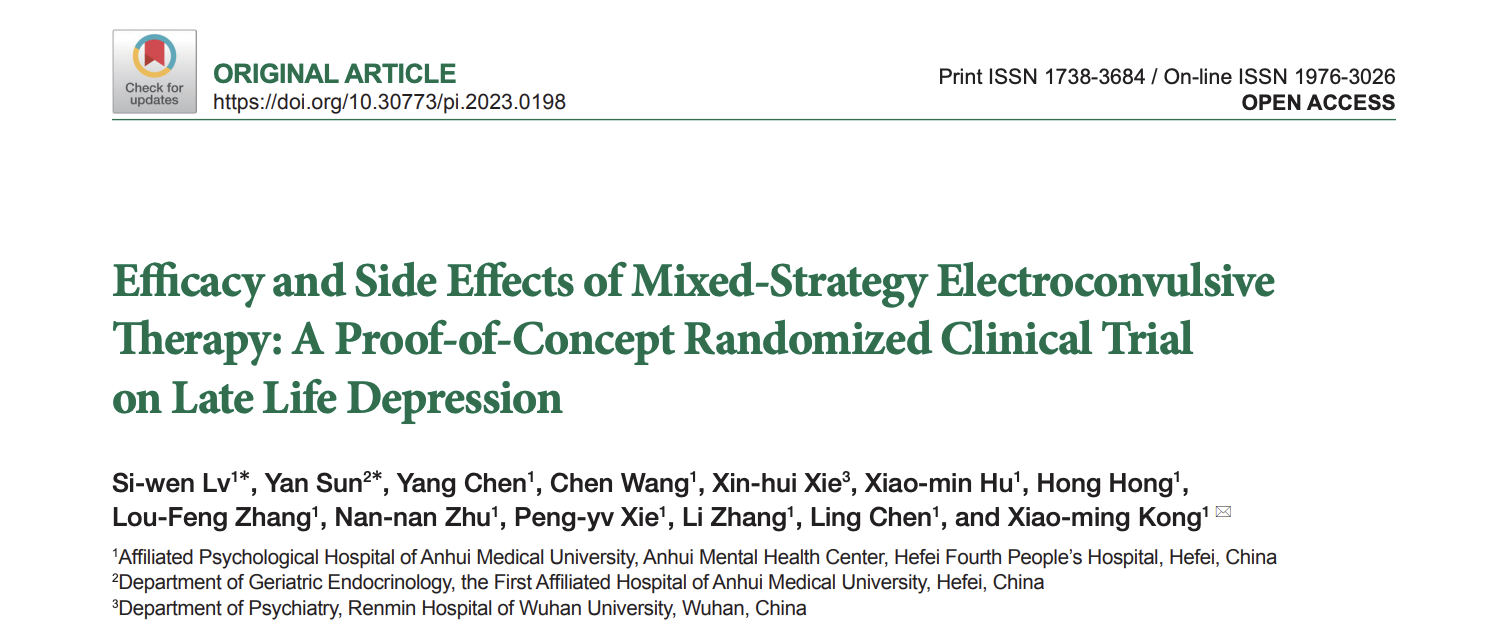"Mixed-Strategy" ECT: New Trial From China
Out on Pubmed, from authors in China, is this study:
Efficacy and Side Effects of Mixed-Strategy Electroconvulsive Therapy: A Proof-of-Concept Randomized Clinical Trial on Late Life Depression.
Psychiatry Investig. 2024 Jul;21(7):772-781. doi: 10.30773/pi.2023.0198. Epub 2024 Jul 24.PMID: 39089703

The abstract is copied below:
Objective: Patients with late life depression sometimes refuse to receive electroconvulsive therapy (ECT) owing to its adverse reactions. To alleviate patient's resistance, a novel ECT stimulation strategy named mixed-strategy ECT (msECT) was designed in which patients are administered conventional ECT during the first three sessions, followed by low energy stimulation during the subsequent sessions. However, whether low energy electrical stimulation in the subsequent stage of therapy affect its efficacy and reduce adverse reactions in patients with late life depression remains unknown. To explore differences between msECT and regular ECT(RECT) with respect to clinical efficacy and side effects.
Methods: This randomized, controlled trial was conducted from 2019 to 2021 on 60 patients with late life depression who were randomly assigned to two groups: RECT or msECT. A generalized estimating equation (GEE) was used to compare the two stimulation strategies regarding their efficacy and side effects on cognition. Chi-squared test was used to compare side effects in the two strategies.
Results: In the intent-to-treat group, the GEE model suggested no differences between-group difference in Hamilton Depression Rating Scale-17 score over time (Wald χ2=7.275, p=0.064), whereas the comparison of side effects in the two strategies favored msECT (Wald χ2=8.463, p=0.015) as fewer patients had adverse events during the second phase of treatment with msECT (χ2 =13.467, p=0.004).
Conclusion: msECT presents its similar efficacy to RECT. msECT may have milder side effects on cognition.
Keywords: Electroconvulsive therapy; Late life depression; Mixed-strategy electrotherapy; Randomized controlled trial.
The paper is here.
And from the text:
Here is a very interesting study design: three high-dose BL ECT, followed by BL ECT at 25 mC in the experimental group. Start powerful, then lighten up to reduce cognitive effects.
There are many problems with this report, and I certainly would not hang my hat on it, but it is definitely innovative. I could not easily tell how many sessions involved missed seizures in the second phase.
Since replication is unlikely, it will probably remain a curiosity.






Comments
Post a Comment